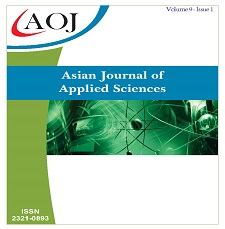Perspectives in Sociology of Education: Basil Bernstein and Popular Education
DOI:
https://doi.org/10.24203/ajas.v9i1.6487Keywords:
Bernstein, Popular Education, sociology, Latin America, Europe, school, studentsAbstract
This paper aims to describe some contributions of the British sociologist Basil Bernstein to Popular Education. In this sense, methodologically, it reviews Bernstein's main works and addresses some bases and perspectives of Popular Education. Thus, initially the paper develops an approach on Bernstein's thought and then focuses on Popular Education, taking into account its European and Latin American characterisation. It finds out three contributions in Bernstein's sociology that are important for Popular Education, namely, (1) the theorization about speech codes; (2) the approach on so-called communicative pedagogy; (3) the dimension related to social change.
References
Apple, M. W. (1992): Education, culture, and class power: Basil Bernstein and the neo-Marxist Sociology of Education, in Educational Theory, vol. 4, nº 2, p. 127-145.
Atkinson, P. (1985): Language, structure and reproduction: an introduction to the sociology of Basil Bernstein. London, Methuen.
Bernstein, B (2000): Pedagogy, symbolic control and identity. New York: Rowman and Littlefield.
Bernstein, B. (1990): Class, codes and control, vol. 4: the structuring of pedagogic discourse. London, Routledge.
Bernstein, B. (1977): Class, codes and control, vol. 3. London: Routledge & Kegan Paul.
Bernstein, B (1973): Class, codes and control, vol. 2. London, Routledge & Kegan Paul.
Bernstein, B. (1962a): Linguistic codes, hesitation phenomena and intelligence, in Language and speech (Teddington, UK), vol. 5, no. 1, p. 31–46.
Bernstein, B. (1962b): Social class, linguistic codes and grammatical elements, in Language and speech (Teddington, UK), vol. 5, no. 4, p. 221–40.
Bernstein, B. (1961a): Social class and linguistic development: a theory of social learning, in Halsey, A.H., Floud, J. & Anderson, C.A.(eds), Education, economy and society. New York: Free Press, p. 288–314
Bernstein, B. (1961b): Social structure, language and learning, in Educational Research, London, vol. 3, nº. 3, p. 163–76.
Bernstein, B. (1960): Language and social class: a research note, in British Journal of Sociology, London, vol. 11, no. 3, p. 271–76.
Bowles, S.; Gintis, H. (1976): Schooling in capitalist America. New York, Basic Books.
Braster, S. (2011): The people, the poor, and the oppressed: the concept of popular education through time, in Paedagogica Historica, 47(1-2), 1-14.
Carrillo, A. T. (2011): La educación popular: Trayectoria y actualidad. Caracas: Universidad Bolivariana de Venezuela.
Danzig, A. (1995): Applications and distortions of Basil Bernstein’s code theory, in Sadovnik, A.R. (ed), Knowledge and pedagogy: the sociology of Basil Bernstein, p. 145–70. Norwood, NJ: Ablex Publishing.
Davis, Z. (2004): The debt to pleasure: the subject and knowledge in pedagogic discourse, in Johan Muller, Brian Davies and Ana Morais, Reading Bernstein, Researching Bernstein. London: RoutlendgeFalmer.
Freire, Paulo (1991): A Educação na Cidade. São Paulo: Cortez.
Freire, Paulo (1970): Pedagogia do oprimido. Rio de Janeiro: Paz e Terra.
Kane, L.(2013): Comparing 'popular' and 'state' education in Latin America and Europe, in European Journal for Research on the Education and Learning of Adults, 4(1), p. 81-96.
Kane, L. (2001): Popular Education and social change in Latin America. London: Latin American Bureau.
Marshall, G. and Scott, J. (2005): A Dictionary of Sociology. New York: Oxford University Press.
McLean, M.; Abbas, A.; Ashwin, P. (2012): The use and value of Bernstein’s work in studying (in)equalities in undergraduate social science education, in British Journal of Sociology of Education, 34(2), p. 1-19.
Morrow, R. A.; Torres, C. A. (2002): Reading Freire and Habermas: Critical Pedagogy and transformative social change. New York: Teachers College Press.
Muller, J. (2004): The possibilities of Basil Bernstein, in Johan Muller, Brian Davies and Ana Morais, Reading Bernstein, Researching Bernstein. London: RoutlendgeFalmer.
Nicholas, V. (2001): When the personal became the educational: towards an ecofeminist popular education in, CONCEPT, 11(3), 29-30.
Sadovnik, A. R. (2001): Basil Bernstein (1924-2000), in Prospects: the quarterly review of comparative education, Paris (UNESCO: International Bureau of Education), vol. XXXI, nº 4, December 2001, p. 687-703.
Scandrett, E. (2001): Popular education and ideology? A response, in CONCEPT, 11(2), 15-16.
Schugurensky, D. (2000): Adult education and social transformation: On Gramsci, Freire and the challenge of comparing comparisons, in Comparative Education Review, 44(4), p. 515-522.
Steele, T. (2007): Knowledge is power!: the rise and fall of European Popular educational movements, 1848-1939. Bern: Peter Lang.
Tiana Ferrer, A. (2011): The concept of popular education revisited – or what do we talk about when we speak of popular education, in Paedagogica Historica, 47(1-2), 15-31.
Zarco, C. (2001). Review of Chapter 1, in Liam Kane (ed), Popular Education and Social Change in Latin America (pp. 29-32). London: Latin American Bureau.
Downloads
Published
Issue
Section
License
Copyright (c) 2021 Ivonaldo Leite

This work is licensed under a Creative Commons Attribution-NonCommercial 4.0 International License.
Copyright © The Author(s). This article is published under the Creative Commons Attribution License (CC BY 4.0), which permits unrestricted use, distribution, and reproduction in any medium, provided the original work is properly cited.


